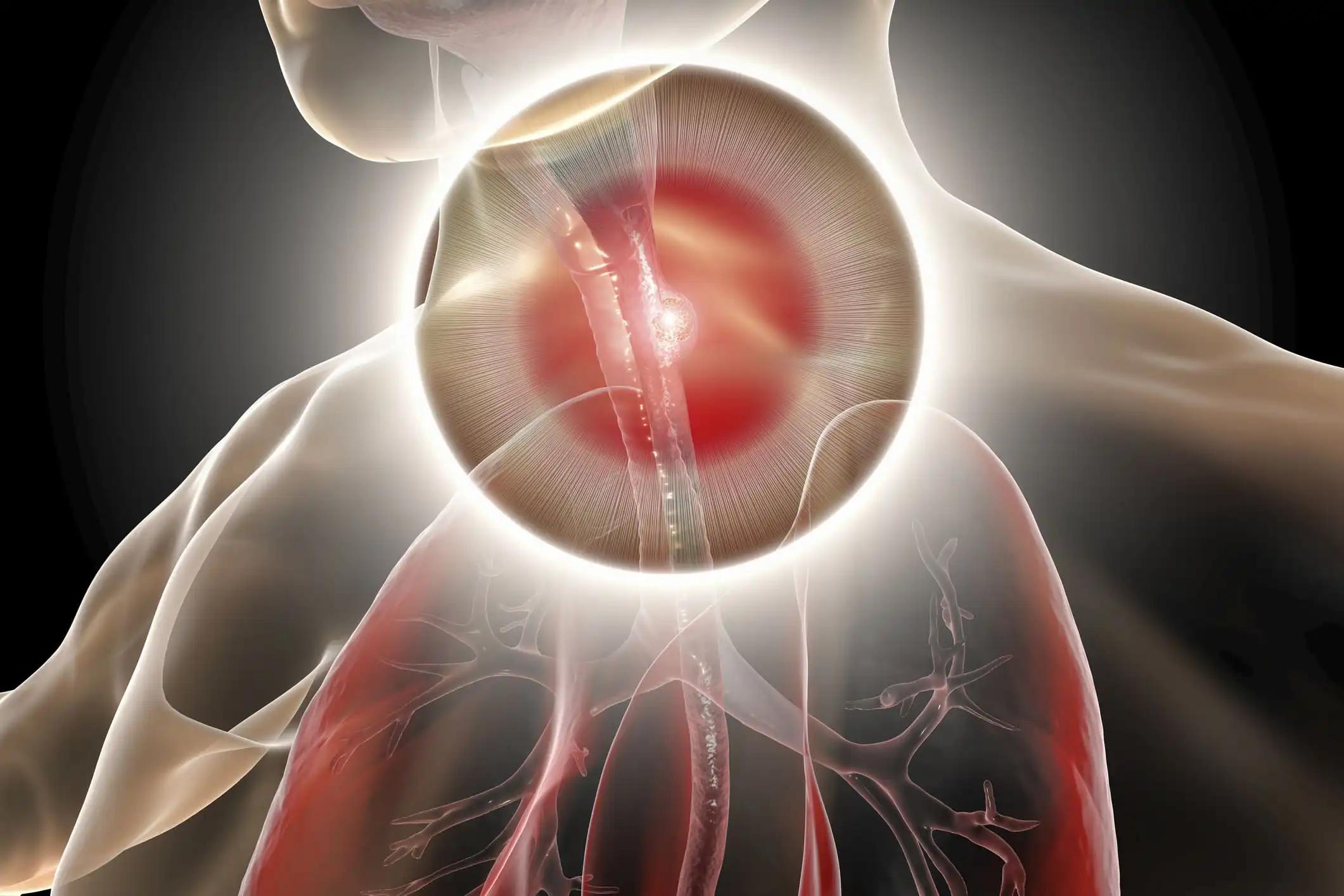KEY TAKEAWAYS
- In a phase 2 study, mobocertinib, a first-in-class oral EGFR tyrosine kinase inhibitor selective for EGFR exon 20 insertions, demonstrated durable responses in pre-treated mNSCLC patients with ex20ins+
- PROs were evaluated using the EORTC QLQ-C30, QLQ-LC13, EQ-5D-5L, and PRO-CTCAE questionnaires.
- Clinically meaningful improvements in EORTC QLQ-LC13 were noted for dyspnea, cough, and chest pain.
- Global health status/QoL, as measured by EORTC QLQ-C30, did not significantly change.
Patients in the EXCLAIM extension cohort of the phase 1/2 study (N = 96; NCT02716116) with previously treated EGFR ex20ins+ metastatic non-small cell lung cancer (mNSCLC), experienced durable responses to mobocertinib, an oral, first-in-class epidermal growth factor receptor (EGFR) tyrosine kinase inhibitor selective for EGFR exon 20 insertions (ex20ins+). Researchers evaluated patient-reported outcomes (PROs) with mobocertinib 160 mg once daily (28-day cycles) in EXCLAIM (N = 90) using the European Organization for Research and Treatment of Cancer Core Quality-of-Life Questionnaire (EORTC QLQ-C30) v3.0, lung cancer module (QLQ-LC13), EuroQol-5 Dimensions-5 Levels (EQ-5D-5L) questionnaire, and a selected PRO Version of the Common Terminology Criteria for Adverse Events (PRO-CTCAE) questionnaire.
The average length of treatment was 6.8 months (range: 0.0-18.8) (median follow-up: 13.0 [0.7-18.8] months; data cutoff: 1 November 2020). Dyspnea (in 54.4% of patients), cough (in 46.7%), and chest pain (in 38.9%) all got better, as measured by the EORTC QLQ-LC13. This was clear at cycle 2 and throughout treatment (least-squares mean [LSM] changes from baseline: dyspnea, -3.2 [p=0.019], cough, -9.3 [p<0.001], chest pain, -8.2 [p<0.001].
The EORTC QLQ-C30 results showed no statistically significant changes in the global health status or quality of life (LSM change from baseline: -1.8 [p=0.235]). On the symptom scores, diarrhea (LSM change from baseline: +34.1; p<0.001) and loss of appetite (+6.6; p = 0.004) got significantly worse from the start, while dyspnea (LSM change from baseline: -5.1; p = 0.002), insomnia (-6.5; p = 0.001), and constipation (-5.7; p<0.001) got better. The health status of EQ-5D-5L was kept up.
Common PRO-CTCAE symptoms were diarrhea, dry skin, rash, and (mostly mild) loss of appetite. In the first 24 weeks of treatment, 64.4% of patients had worsening diarrhea frequency, and 67.8% had deteriorating dry skin severity. Overall, PROs with mobocertinib showed that lung cancer symptoms got better in a clinically meaningful way. Health-related quality of life stayed the same, even though some symptom scales for side effects changed.
Source:https://www.ncbi.nlm.nih.gov/pmc/articles/PMC9821270/
Clinical Trial: https://clinicaltrials.gov/ct2/show/NCT02716116
Campelo M, Zhou C, Ramalingam S, Lin H, Kim T, Riely G, Mekhail T, Nguyen D, Goodman E, Mehta M, Popat S, Jänne P. Mobocertinib (TAK-788) in EGFR Exon 20 Insertion+ Metastatic NSCLC: Patient-Reported Outcomes from EXCLAIM Extension Cohort. J Clin Med. 2022 Dec 23;12(1):112. doi: 10.3390/jcm12010112. PMID: 36614913; PMCID: PMC9821270.



